 W
WTalal Asad is a Saudi-born British cultural anthropologist at the Graduate Center of the City University of New York. Asad has made important theoretical contributions to postcolonialism, Christianity, Islam, and ritual studies and has recently called for, and initiated, an anthropology of secularism. Using a genealogical method developed by Friedrich Nietzsche and made prominent by Michel Foucault, Asad "complicates terms of comparison that many anthropologists, theologians, philosophers, and political scientists receive as the unexamined background of thinking, judgment, and action as such. By doing so, he creates clearings, opening new possibilities for communication, connection, and creative invention where opposition or studied indifference prevailed".
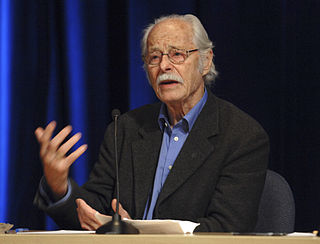 W
WThomas Fredrik Weybye Barth was a Norwegian social anthropologist who published several ethnographic books with a clear formalist view. He was a professor in the Department of Anthropology at Boston University, and previously held professorships at the University of Oslo, the University of Bergen, Emory University and Harvard University. He was appointed a government scholar in 1985.
 W
WAlexander V. Chayanov was a Soviet agrarian economist, and scholar of rural sociology and advocate of agrarianism and cooperatives.
 W
WDame Mary Douglas, was a British anthropologist, known for her writings on human culture and symbolism, whose area of speciality was social anthropology. Douglas was considered a follower of Émile Durkheim and a proponent of structuralist analysis, with a strong interest in comparative religion.
 W
WDavid Émile Durkheim was a French sociologist. He formally established the academic discipline of sociology and, with Max Weber, is commonly cited as the principal architect of modern social science.
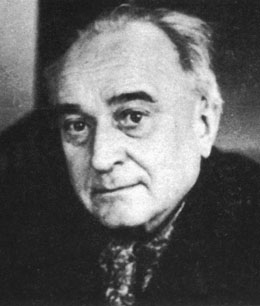 W
WSir Edward Evan Evans-Pritchard, FBA, known as E. E. Evans-Pritchard, was an English anthropologist who was instrumental in the development of social anthropology. He was Professor of Social Anthropology at the University of Oxford from 1946 to 1970.
 W
WSir Raymond William Firth was an ethnologist from New Zealand. As a result of Firth's ethnographic work, actual behaviour of societies is separated from the idealized rules of behaviour within the particular society. He was a long serving Professor of Anthropology at London School of Economics, and is considered to have singlehandedly created a form of British economic anthropology.
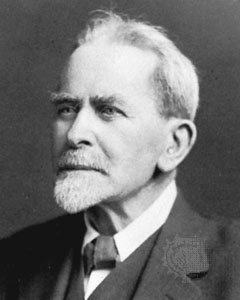 W
WSir James George Frazer was a Scottish social anthropologist and folklorist influential in the early stages of the modern studies of mythology and comparative religion. His most famous work, The Golden Bough (1890), documents and details the similarities among magical and religious beliefs around the world. Frazer posited that human belief progressed through three stages: primitive magic, replaced by religion, in turn replaced by science.
 W
WClifford James Geertz was an American anthropologist who is remembered mostly for his strong support for and influence on the practice of symbolic anthropology, and who was considered "for three decades...the single most influential cultural anthropologist in the United States." He served until his death as professor emeritus at the Institute for Advanced Study, Princeton.
 W
WAlfred Antony Francis Gell, was a British social anthropologist whose most influential work concerned art, language, symbolism and ritual. He was trained by Edmund Leach and Raymond Firth and did his fieldwork in Melanesia and tribal India. Gell taught at the London School of Economics, among other places. He was also a Fellow of the British Academy. He died of cancer in 1997, at the age of 51.
 W
WErnest André Gellner was a British-Czech philosopher and social anthropologist described by The Daily Telegraph, when he died, as one of the world's most vigorous intellectuals, and by The Independent as a "one-man crusader for critical rationalism".
 W
WArnold van Gennep, in full Charles-Arnold Kurr van Gennep was a Dutch–German-French ethnographer and folklorist.
 W
WAbdollah Guivian is an Iranian writer and sociologist whose work focuses on anthropology of religion, media studies and Iranian Armenians. He was the founding editor of the journal Communication Research. Guivian is credited as the "father of video clips in Iran".
 W
WDaria Andreyevna Khaltourina is a Russian sociologist, anthropologist, demographer, and a public figure. She is the head of the Group of the Monitoring of Global and Regional Risks of the Russian Academy of Sciences, co-chairperson of the Russian Coalition for Alcohol Control, as well as the Russian Coalition for Tobacco Control. She is a laureate of the Russian Science Support Foundation Award in "The Best Economists of the Russian Academy of Sciences" nomination (2006).
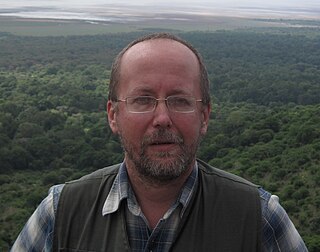 W
WAndrey Vitalievich Korotayev is a Russian anthropologist, economic historian, comparative political scientist, demographer and sociologist, with major contributions to world-systems theory, cross-cultural studies, Near Eastern history, Big History, and mathematical modelling of social and economic macrodynamics.
 W
WRuth Landes was an American cultural anthropologist best known for studies on Brazilian candomblé cults and her published study on the topic, City of Women (1947). Landes is recognized by some as a pioneer in the study of race and gender relations.
 W
WClaude Lévi-Strauss was a French anthropologist and ethnologist whose work was key in the development of the theory of structuralism and structural anthropology. He held the chair of Social Anthropology at the Collège de France between 1959 and 1982, was elected a member of the Académie française in 1973 and was a member of the School for Advanced Studies in the Social Sciences in Paris. He received numerous honors from universities and institutions throughout the world and has been called, alongside James George Frazer and Franz Boas, the "father of modern anthropology".
 W
WLucien Lévy-Bruhl was a French scholar trained in philosophy who furthered anthropology with his contributions to the budding fields of sociology and ethnology. His primary field of study involved primitive mentality.
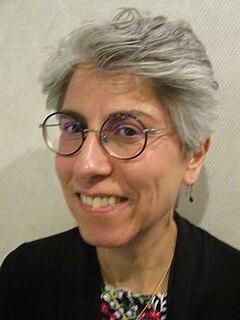 W
WSabina Magliocco, is a professor of Anthropology and Religion at the University of British Columbia and formerly at California State University, Northridge (CSUN). She is an author of non-fiction books and journal articles about folklore, religion, religious festivals, foodways, witchcraft and Neo-Paganism in Europe and the United States.
 W
WBronisław Kasper Malinowski was an anthropologist whose writings on ethnography, social theory, and field research were a lasting influence on the discipline of anthropology.
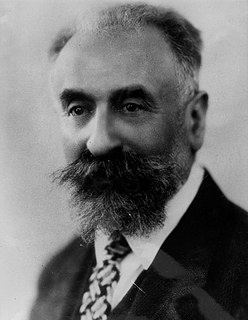 W
WMarcel Mauss was a French sociologist. The nephew of Émile Durkheim, Mauss, in his academic work, crossed the boundaries between sociology and anthropology. Today, he is perhaps better recognised for his influence on the latter discipline, particularly with respect to his analyses of topics such as magic, sacrifice and gift exchange in different cultures around the world. Mauss had a significant influence upon Claude Lévi-Strauss, the founder of structural anthropology. His most famous work is The Gift (1925).
 W
WClaudio Benjamín Naranjo Cohen was a Chilean-born psychiatrist of Arabic/Moorish, Spanish and Jewish descent who is considered a pioneer in integrating psychotherapy and the spiritual traditions. He was one of the three successors named by Fritz Perls, a principal developer of Enneagram of Personality theories and a founder of the Seekers After Truth Institute. He was also an elder statesman of the US and global human potential movement and the spiritual renaissance of the late 20th century. He was the author of various books.
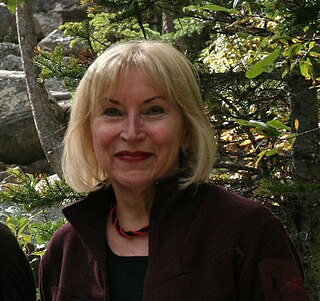 W
WKarla Poewe is an anthropologist and historian. She is the author of ten academic books and fifty peer reviewed articles in international journals. Currently Poewe is Professor Emeritus in Anthropology at the University of Calgary, Calgary, Alberta, Canada and Adjunct Research Professor at Liverpool Hope University, Liverpool, England. She is married to Irving Hexham.
 W
WPaul Radin was an American cultural anthropologist and folklorist of the early twentieth century specializing in Native American languages and cultures. The noted legal scholar Max Radin was his older brother.
 W
WRoy A. Rappaport (1926–1997) was an American anthropologist known for his contributions to the anthropological study of ritual and to ecological anthropology.
 W
WSven Arne Runeberg was a Finnish anthropologist and linguist, best known for his studies on magic, witchcraft, and sociolinguistics.
 W
WHenric Sanielevici was a Romanian journalist and literary critic, also remembered for his work in anthropology, ethnography, sociology and zoology. Initially a militant socialist from the political-philosophical circle of Constantin Dobrogeanu-Gherea, he incorporated other influences and, in 1905, created his own literary review, Curentul Nou. Sanielevici and his friend Garabet Ibrăileanu were among the founders of "Poporanism", a peasant-oriented and left-wing movement. However, Sanielevici soon detached himself from both Marxism and agrarianism, criticizing Romanian traditionalist literature, and prophesying a Neoclassicism for the working men. His heated polemic with the rival school of Sămănătorul journal isolated him from the other Poporanists, whom he eventually denounced as "reactionaries". More controversy surrounded his ambiguous attitudes during World War I.
 W
WYoussef Seddik is a noted Tunisian philosopher and anthropologist specializing in Ancient Greece and the anthropology of the Qur'an.
 W
WMelford Elliot "Mel" Spiro was an American cultural anthropologist specializing in religion and psychological anthropology. He is known for his critiques of the pillars of contemporary anthropological theory—wholesale cultural determinism, radical cultural relativism, and virtually limitless cultural diversity—and for his emphasis on the theoretical importance of unconscious desires and beliefs in the study of stability and change in social and cultural systems, particularly in respect to the family, politics, and religion. Explicated in numerous theoretical publications, they are empirically exemplified in monographs based on his fieldwork in Ifaluk atoll in Micronesia, an Israeli kibbutz, and a village in Burma.
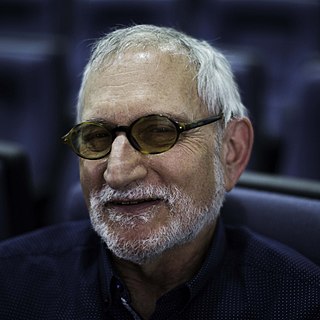 W
WPaul Stoller is an American cultural anthropologist. He is a professor of anthropology at West Chester University in West Chester, Pennsylvania.
 W
WStanley Jeyaraja Tambiah was a social anthropologist and Esther and Sidney Rabb Professor (Emeritus) of Anthropology at Harvard University. He specialised in studies of Thailand, Sri Lanka, and Tamils, as well as the anthropology of religion and politics.
 W
WSir Edward Burnett Tylor was an English anthropologist, the founder of cultural anthropology.
 W
WAnthony Francis Clarke Wallace was a Canadian-American anthropologist who specialized in Native American cultures, especially the Iroquois. His research expressed an interest in the intersection of cultural anthropology and psychology. He was famous for the theory of revitalization movements.
 W
WEdvard Alexander Westermarck was a Finnish philosopher and sociologist. Among other subjects, he studied exogamy and the incest taboo.